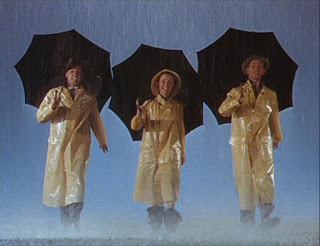In my previous post about Shylock, I discussed the controversy surrounding the Jewishness of the evil Shylock and that a lot of readers and critics find the play troubling because of this. An idea that concerned me in some of my research about different viewpoints on the play was the sense that some actors and directors were afraid to touch the play - that the subject matter was too hot to handle. I was happily able to see a powerful performance of the play last year at the Oregon Shakespeare Festival, and was very moved by it - it makes me sad that some people could miss out on the play because of what I see as a distorted focus. I was therefore very happy to find, in the Playing Shakespeare
Playing Shakespeare is a very, very cool British TV series from the 1980s where some of the actors and directors from the Royal Shakespeare Company got together and talked about ways to approach performing Shakespeare, with actors such as Ian McKellen, Ben Kingsley and Patrick Stewart giving short scenes and working on them with directors Trevor Nunn and John Barton. It's great fun for any Shakespeare fan - if the comments section from the Amazon link
My favorite episode in the series is all about Shylock - David Suchet, the delightful actor known everywhere to watchers of PBS's Mystery! as Hercule Poirot, and Patrick Stewart, of Star Trek fame, discuss the part and both perform, with differing interpretation, several scenes from the play. I have to agree with Shakespeare Geek here that I prefer Suchet's interpretation of the role - he's truly scary! - but the insights that both men bring are fascinating, even when I don't completely agree with them. You can - and should - watch the whole episode online here on the Theatre in Video site - it's under an hour. However, here's a little taste of David Suchet's Shylock to get you going:
Though Stewart and Suchet dig deeply into the motivations, characterization and actions of Shylock, one piece that I see as missing from their discussion is a really clear view of how Shylock fits in with the rest of the play. But what is really going on? What is this play all about? I see the play, as I mentioned before, as about money, marriage and murder, all leading up to mercy. In my next post, I hope to get more deeply into the question of law vs. grace and the importance of promises and bonds in the play - and how Shylock fits into these questions.
































